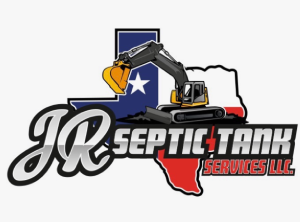Understanding Why Septic Systems Fail and Ways to Fix Them
Septic systems are essential for homes not connected to a city sewer system. These systems treat and dispose of household wastewater efficiently when working correctly. However, septic drain fields can fail for various reasons, leading to unpleasant odors and costly repairs. Understanding these causes and finding effective solutions is crucial in maintaining your system’s efficiency. This article outlines the common reasons why septic drain fields fail and provides actionable solutions to address these issues.
The Role of Maintenance in Septic System Health
Regular maintenance plays a significant role in preventing septic drain field failure. Many homeowners overlook routine check-ups, which can lead to undetected problems becoming severe over time. Regular inspections and pumping help ensure that the system functions properly. During these checks, professionals can identify potential issues before they become major problems, thus avoiding costly septic repair services down the road.
Overloading the System
One common cause of septic drain field failure is system overload. This happens when too much water enters the system at once, typically due to excessive use of water appliances or plumbing leaks. Overloading saturates the soil in the drain field, making it less effective at absorbing water. To mitigate this issue, consider spreading out laundry loads throughout the week or fixing leaks promptly. Addressing these practices helps maintain balance within your septic system.
Poor Installation Practices
A poorly installed septic system increases the risk of failure significantly. Improper installation can lead to poor drainage and ineffective waste breakdown. It’s vital to hire experienced professionals for installation to ensure that all components meet local regulations and standards. Quality installation minimizes future issues and reduces the need for frequent septic repair services.
The Impact of Plant Roots
Trees and large shrubs planted near a septic system can wreak havoc on its functionality. Their roots naturally seek out moisture-rich areas, such as your septic drain field. Over time, roots can penetrate pipes and cause blockages or even breakage. To avoid these issues, plant trees and shrubs away from septic components. If removal of existing plants is needed, consult with an expert to prevent damage during the process.
Using Non-Biodegradable Items
Many people unknowingly flush non-biodegradable items, like wet wipes or feminine hygiene products, into their septic systems. These items do not break down easily and can clog pipes, leading to backups and drain field failures. It’s important to educate everyone in the household about proper disposal practices. Consider placing visible reminders in bathrooms so everyone remembers what should and shouldn’t go down the toilet.
Environmental Factors Affecting Septic Systems
Environmental conditions such as heavy rainfall or flooding can compromise the effectiveness of a septic system. Saturated soils around the drain field struggle to absorb additional water, causing backups or system failure. Installing a drainage system or regrading the landscape around your property can help divert excess water away from the septic area. Such preventative measures are key in maintaining optimal system performance.
Finding Professional Help When Needed
If you experience ongoing issues despite following best practices, it might be time to seek professional help. Experts in this field possess the knowledge to diagnose complex problems accurately. They offer valuable insights into improving system performance and longevity. Working with a certified technician ensures you’re receiving reliable advice tailored to your specific situation, providing peace of mind regarding your home’s wastewater management.
Conclusion: Safeguarding Your Septic System Investment
Your septic system represents a significant investment in home infrastructure; protecting it is paramount. To do so effectively involves understanding potential challenges and implementing solutions proactively. From regular maintenance to being mindful of daily usage habits, these strategies contribute significantly towards long-term operational success. Should difficulties arise beyond personal expertise, don’t hesitate to contact a specialist located nearby who offers exceptional service tailored precisely according to unique needs. Call (903) 343-2534 today for expert support, and remember that at JR Septic Tank Installing & Repairing Services LLC, based in Tyler, TX, individualized attention remains our top priority!
